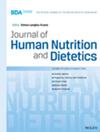Dietary Energy and Nutrient Intake Among Pregnant Women in Sri Lanka: Findings From the Sri Lanka Mother and Newborn Growth Cohort Study
Abstract
Background
Maternal nutrition during pregnancy is crucial to ensure positive outcomes for both the mother and newborn. Despite its importance, maternal nutritional status remains poor, particularly in low- and middle-income countries, where social, cultural and economic factors play a pivotal role. This study assessed the adequacy of energy and dietary nutrient intake among Sri Lankan pregnant women compared to their dietary reference intakes.
Methods
This study was part of the Sri Lanka Mother and Newborn Growth study, a nationwide prospective cohort of 2000 pregnant women. We prospectively investigated maternal dietary intake using a validated food frequency questionnaire during the first, second and third trimesters.
Results
We observed an imbalanced macronutrient distribution, with carbohydrates contributing over 67% of total median energy intake, while protein and fat contributed approximately 11% and 17%, respectively. Ethnic and socio-economic disparities in energy and macronutrient intake were notable. The Sinhalese ethnic group showed the highest median percentage of energy consumption derived from carbohydrates at 68.0% (IQR: 64.6%‒71.1%), significantly exceeding the intake of Tamil and Moor groups. Estate residents reported the lowest proportion of energy from protein (10.6%, IQR: 10.1%‒11.3%), which was significantly lower than the intakes of urban and rural residents. Additionally, women in the lowest income group had a lower total energy intake (1871 kcal/day, IQR: 1464–2392) than those in higher income groups, highlighting socio-economic influences on maternal nutrition. Micronutrient deficiencies were pervasive, particularly for vitamin B2 (88.6%–91.0%), folate (99.3%–99.8%), vitamin B12 (97.8%–99.5%), calcium (80.8%–91.4%) and iron (91.1%–96.5%). Sodium intake exceeded recommended levels for over 75% of women across all trimesters.
Conclusion
Imbalances in macronutrient intake and widespread micronutrient deficiencies among Sri Lankan pregnant women underscore the urgent need for interventions targeting maternal nutrition. Addressing socio-economic disparities is critical to improving maternal and neonatal health outcomes.


 求助内容:
求助内容: 应助结果提醒方式:
应助结果提醒方式:


